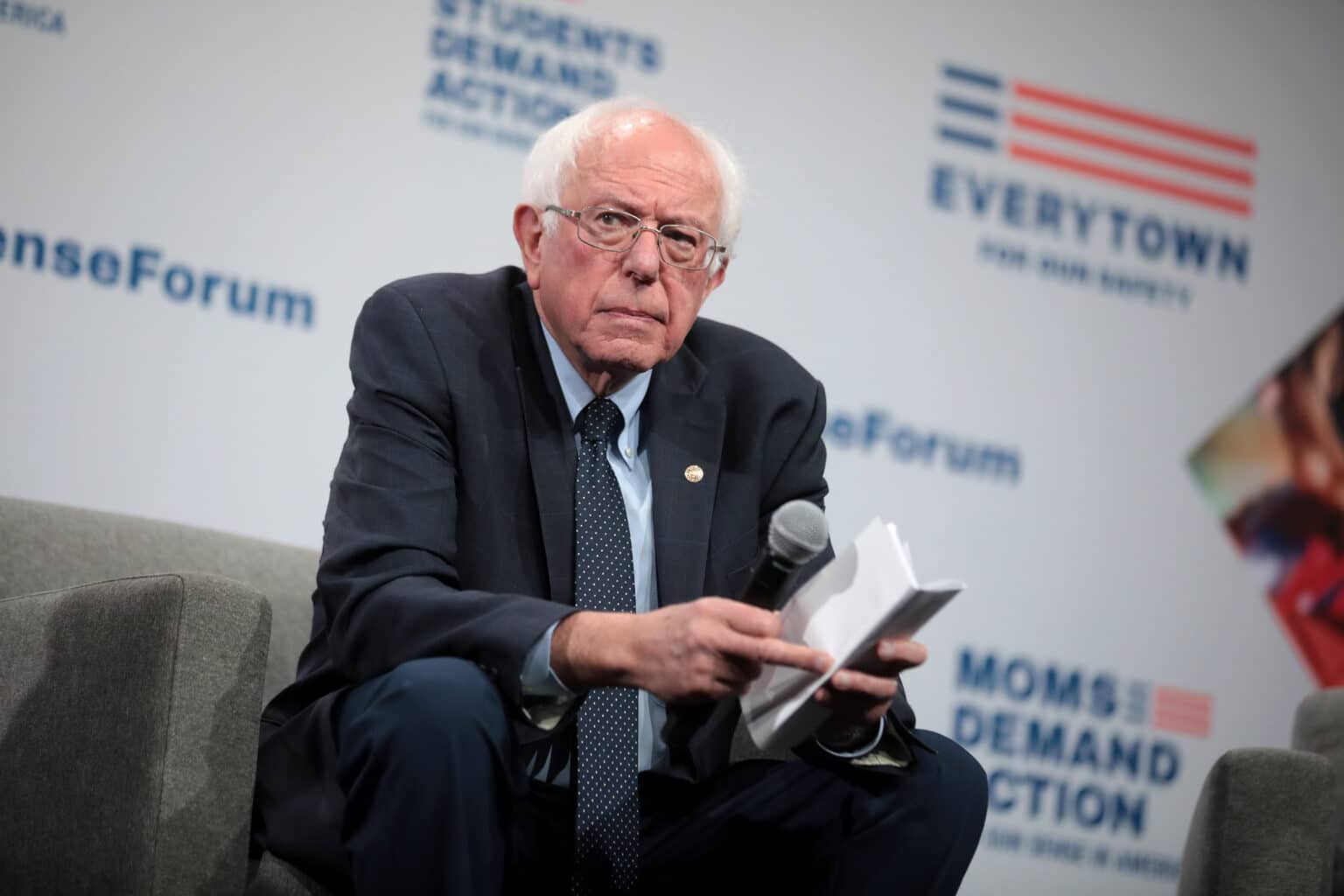By Jake Johnson, Common Dreams. Originally published on Common Dreams under CC BY-NC-ND 3.0.
After his amendments to expand Medicare and strip out giveaways to the fossil fuel industry were defeated in near-unanimous votes by Democrats and Republicans, Sen. Bernie Sanders on Sunday supported final passage of the so-called Inflation Reduction Act but said it “goes nowhere near far enough in addressing the problems facing struggling working families.”
Sanders, the chair of the Senate Budget Committee, offered amendments that would have removed oil and gas handouts from the reconciliation bill; added dental, hearing, and vision coverage to Medicare; established a Civilian Conservation Corps; strengthened the measure’s drug price provisions; revived the expanded child tax credit; and hiked the corporate tax rate.
The Vermont senator was the lone yes vote on all but one of his amendments; Sens. Raphael Warnock (D-Ga.) and Jon Ossoff (D-Ga.) supported the proposal to expand Medicare.
Despite his concerns and warnings about the bill—which was repeatedly weakened in the days leading up to Sunday’s vote—Sanders said in a statement after voting yes on the final package that “it is a step forward” and he “was happy to support it.”
“At a time when we face the existential crisis of climate change, the most significant part of this bill is an unprecedented $300 billion investment in clean energy and energy efficiency, including a $7 billion solar rooftop proposal that I introduced,” said Sanders. “This bill could help increase U.S. solar energy by 500% and more than double wind energy by 2035. That is no small thing.”
“This bill also begins the work of making the wealthy and large corporations pay their fair share in taxes by imposing a 15% minimum tax on corporations,” the senator continued. “It also gives the IRS the resources they need to pursue the estimated $1 trillion in taxes not paid by the wealthiest people in this country, and will help ordinary, working people get their returns faster.”
“This legislation also takes a small step in dealing with the outrageous prices of prescription drugs,” he continued. “Finally, we are giving Medicare the power to directly negotiate prescription drug prices with manufacturers on behalf of beneficiaries. Unfortunately, that provision does not kick in until 2026 and starts with only ten drugs.”
Today the Inflation Reduction Act passed the Senate 51-50. In my view, this legislation goes nowhere near far enough for working families, but it does begin to address the existential crisis of climate change. It’s an important step forward and I was happy to support it. pic.twitter.com/x27lx2FFiJ
— Bernie Sanders (@SenSanders) August 7, 2022
The bill is expected to clear the House this week, securing a legislative win for the Democratic Party after a year and a half of negotiations that were repeatedly derailed by Sens. Joe Manchin (D-W.Va.) and Kyrsten Sinema (D-Ariz.), corporate-funded lawmakers who were able to dictate the scope of the final package.
“This is not Bernie’s bill,” Manchin told reporters Sunday.
The West Virginia Democrat delivered significant handouts to fossil fuel giants, which help bankroll his campaigns, while Sinema shielded the private equity industry’s ability to avoid taxes.
“Shame on Senator Kyrsten Sinema, who had to be dragged kicking and screaming across the finish line, carrying water for her private equity overlords to the bitter end,” said Erica Payne, founder and president of the Patriotic Millionaires. “Thanks in large part to Sinema’s obstruction, there’s more work to be done, but the Inflation Reduction Act is a monumental step in the right direction.”
The Inflation Reduction Act represents a dramatic step back from the $3.5 trillion framework that Senate Democrats agreed to pursue in July 2021, when the party’s leadership had hopes of approving transformational climate action, enacting universal pre-K, making child care and housing affordable, and expanding Medicare.
It’s unclear whether any House progressives will mount a push to change the legislation before sending it to President Joe Biden for his signature.
Rep. Pramila Jayapal (D-Wash.), the chair of the Congressional Progressive Caucus, said Sunday that House progressives “do not support the bill’s new provisions that expand fossil fuel leasing.”
“However, independent analyses show that their limited impact will be far outweighed by the carbon emissions cuts this legislation accomplishes,” said Jayapal. “We look forward to voting for this bill as it comes to the House and sending it to the president’s desk immediately.”
Subscribe to our newsletter
Stay up to date with DeSmog news and alerts







